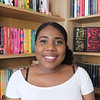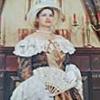You need to sign in or sign up before continuing.
Take a photo of a barcode or cover
A poetic, elegiac first novel about an elderly gay Syrian man looking back on his life and telling stories while his partner is dying. The timeless, fairy tale feel of the stories he tells particularly reminded me of Helen Oyeyemi. Although dark at times (content includes suicide, mental illness, gay-bashing, sexual assault), the book is ultimately life-affirming as well as healing, for both the author and readers. Full review on my blog!
I have mixed feelings about this book. The concept of Death as a character with whom one can converse is fascinating, though I felt a tension within the execution. To forgo a basic or even fragmented plot structure in favour of vignettes is a bold move. In my opinion, it is not a choice that does justice to the many stories Ahmad Danny Ramadan is trying to tell.
Because of the combination of the vignette structure with shifting narrative voice, I spent a great deal of time confused and trying to orient myself in terms of whose story was being told and where? After too many pages of confusion, I became annoyed. I really dislike guessing who the "you" is in a second person narrative voice. I don't know if this is an attempt at creating distance or intimacy? I can tell you it made for a frustrating reading experience. I do not appreciate feeling like I can't keep up with the shifting landscape of a text. If this was supposed to be a mirror of the displacement felt by refugees, then I really do not understand the choice of the second person which always confuses character and reader.
I was also annoyed by the repetition. Okay, put flour in the eggs. We know. And how many times did we need to hear women described as lesbians? It's as though that was the only word, the only identity these women could be. They're queer. They're here. We're all fine with it. Can they not just be people after the first descriptor mentioned once?
I also struggled with the tension between the poetic descriptions and very basic sentence structure in some passages. It's as though Ramadan is trying to decide between poetic and colloquial and cannot always merge the two. I loved the section in the 120s but then page 130 arrived and I wished he would have employed some restraint. Ramadan writes "the white of the fabric glowed like a snowflake forgotten by December..." That is a line stunning in its metaphoric simplicity. The problem is that it's followed by a paragraph and a half about clouds that does not come close to that level of poetry and undoes the beautiful moment he created. Restraint, and a "tough love" approach by the editor would have helped.
Ultimately, I feel like pieces of a very important story about grief, pain, trauma, and love went missing because of the narrative and structural choices of the author.
Because of the combination of the vignette structure with shifting narrative voice, I spent a great deal of time confused and trying to orient myself in terms of whose story was being told and where? After too many pages of confusion, I became annoyed. I really dislike guessing who the "you" is in a second person narrative voice. I don't know if this is an attempt at creating distance or intimacy? I can tell you it made for a frustrating reading experience. I do not appreciate feeling like I can't keep up with the shifting landscape of a text. If this was supposed to be a mirror of the displacement felt by refugees, then I really do not understand the choice of the second person which always confuses character and reader.
I was also annoyed by the repetition. Okay, put flour in the eggs. We know. And how many times did we need to hear women described as lesbians? It's as though that was the only word, the only identity these women could be. They're queer. They're here. We're all fine with it. Can they not just be people after the first descriptor mentioned once?
I also struggled with the tension between the poetic descriptions and very basic sentence structure in some passages. It's as though Ramadan is trying to decide between poetic and colloquial and cannot always merge the two. I loved the section in the 120s but then page 130 arrived and I wished he would have employed some restraint. Ramadan writes "the white of the fabric glowed like a snowflake forgotten by December..." That is a line stunning in its metaphoric simplicity. The problem is that it's followed by a paragraph and a half about clouds that does not come close to that level of poetry and undoes the beautiful moment he created. Restraint, and a "tough love" approach by the editor would have helped.
Ultimately, I feel like pieces of a very important story about grief, pain, trauma, and love went missing because of the narrative and structural choices of the author.
reflective
sad
medium-paced
Plot or Character Driven:
Character
4. Gay life in Arab country is not something you meet in books every day ( at least i ) nor have i yet to read stories about life in Syria Pre and during the civil war.
The story swings between Damascus ,Cairo , Beirut and Vancouver . In Vancouver i felt the swing tangled a bit in the "love triangle " ,but in most parts it swung beautifully and heartachingly.
The story swings between Damascus ,Cairo , Beirut and Vancouver . In Vancouver i felt the swing tangled a bit in the "love triangle " ,but in most parts it swung beautifully and heartachingly.
The Clothesline Swing by Danny Ramadan is a profoundly abstract contemporary novel about a Syrian refugee couple who fled the war in their country to migrate to Canada. Now they are old and frail men, one of whom is nearing death. The unnamed lovers, 'the hakawati' (storyteller) and the artist trade stories and relive traumatic memories of their war-bridled past, with Death himself as their companion. This book was both beautifully poetic and extremely angering. It was one of the most in-depth books I've read all year.
אני חושבת שהספר הזה היה די יפה אבל בחירה לא טובה לאודיו.
לא הצלחתי לעקוב אחרי הסיפורים, ולפעמים שחקוואתי לא היה הדובר, היה לי קשה לעקוב אחרי זה.
כן היה לי מעניין לקרוא על סורי ועל להיות קוויר בעולם המוסלמי, אולי הייתי צריכה לקרוא בפרינט או לבחור ספר יותר עלילתי.
לא הצלחתי לעקוב אחרי הסיפורים, ולפעמים שחקוואתי לא היה הדובר, היה לי קשה לעקוב אחרי זה.
כן היה לי מעניין לקרוא על סורי ועל להיות קוויר בעולם המוסלמי, אולי הייתי צריכה לקרוא בפרינט או לבחור ספר יותר עלילתי.
emotional
inspiring
reflective
sad
slow-paced
Plot or Character Driven:
Character
Strong character development:
Complicated
Loveable characters:
Yes
Diverse cast of characters:
Complicated
Flaws of characters a main focus:
Complicated
Beautifully written and deeply moving story of love and war and fairy tales in modern Syria and future Canada.
Also, the hero is a fellow geek, which made me love him even more.
Also, the hero is a fellow geek, which made me love him even more.
This *is* a lovely book - with a love story at its centre, coloured and complicated by migration and displacement, the oppression of queerness, war, friendships, trauma. It is told mostly from the frame of the central character as an elderly man looking back at his life and talking to his partner (sometimes explicitly, sometimes as if in a letter), and also to the figure of death - which is a nice perspective and means that the picture is gradually built up rather than being a linear narrative, as well as adding in the question of how reliable the narration is re: the narrator's age, memory, evident PTSD.
However unfortunately the book was for me full of clichés .... and when I say FULL - both in terms of the plot (nothing really felt like it ever came as a surprise and every turn was just really predictable?) - and in terms of the use of metaphors and turns of phrase, which just felt really tired and unfortunately really detracted from some other moments where the prose was really beautiful. I also felt like the relationship was central to the narrative to the extent of overshadowing other themes - so the potential power of the story's context (of migrating away from authoritarianism and war in Syria) was kind of diminished given the hackneyed (though still obviously important to remember) stories of the oppression of young gay men. Also it felt like a somewhat sanitised view of gay / queer lives - there was explicit sex right at the start of the book which then went away totally (which felt bizarre), and some limited discussion of their queer community in Damascus / Beirut, but I really felt like the queerness of the relationship wasn't explored in interesting ways and that was a really missed opportunity. And the way that the end of their lives was talked about felt really heteronormative. It's obviously ok for a story about gay men to not be especially queer.com, but it just felt like it wasn't reflected on very well at all.
I just read a review which said it was "a coming-out memoir, a history lesson, a critique of authoritarianism, a narrative about sharing narratives – but above all, it's a requiem for a dying country and people" and I just don't agree - I think it is all those things to some extent, but the potency of the political context / critique is completely overshadowed by it being predominantly a "a coming-out memoir." And I just found that really disappointing - I was really hoping for a more insightful reflection on how war, displacement and migration interact with the queer experience and I really don't think I got that in a meaningful way. One of the most interesting and powerful things about the book was the narrator's relationship with his mother, and her life - which was where some of the nicest prose, most nuanced emotional / interpersonal reflection, and most interesting storytelling came. And whilst I did really value that story, I just didn't think it added very much to the supposed themes of the book.
Reflecting on this now, I'm thinking about Ocean Vuong's On Earth We're Briefly Gorgeous - which I think actually explores lots of similar themes but just does SUCH a better job. I appreciate that it isn't necessarily appropriate to compare or conflate two different experiences of being a PoC refugee from a post-colonial country, and Syria and Vietnam are obviously COMPLETELY different contexts - but there are actually a lot of parallels between the two books (complex maternal relationship, cultural displacement and erasure, difficult and formative romantic relationships, also non-linear narrative which gradually builds the full picture). And whilst the Vuong is breathtakingly beautiful, original, nuanced, poignant, unpredictable, volatile, powerful ... this just really falls short in comparison unfortunately, in its use of language, structure, perspective, suspense.
I'm still glad I read this book as it was a nice page-turner and a soothingly easy read, even if the clichés sometimes got a bit tiresome. I would still recommend this book if you want an easy read about queer men's lives within a poignant framework of migration and displacement, and I think it would be a GREAT one to give to a young gay man (age 15?) as an intro to queer literature. However if you're looking for powerful reflection on the post-war diasporic experience as intersecting with queer life, it's maybe not quite going to his the mark.
However unfortunately the book was for me full of clichés .... and when I say FULL - both in terms of the plot (nothing really felt like it ever came as a surprise and every turn was just really predictable?) - and in terms of the use of metaphors and turns of phrase, which just felt really tired and unfortunately really detracted from some other moments where the prose was really beautiful. I also felt like the relationship was central to the narrative to the extent of overshadowing other themes - so the potential power of the story's context (of migrating away from authoritarianism and war in Syria) was kind of diminished given the hackneyed (though still obviously important to remember) stories of the oppression of young gay men. Also it felt like a somewhat sanitised view of gay / queer lives - there was explicit sex right at the start of the book which then went away totally (which felt bizarre), and some limited discussion of their queer community in Damascus / Beirut, but I really felt like the queerness of the relationship wasn't explored in interesting ways and that was a really missed opportunity. And the way that the end of their lives was talked about felt really heteronormative. It's obviously ok for a story about gay men to not be especially queer.com, but it just felt like it wasn't reflected on very well at all.
I just read a review which said it was "a coming-out memoir, a history lesson, a critique of authoritarianism, a narrative about sharing narratives – but above all, it's a requiem for a dying country and people" and I just don't agree - I think it is all those things to some extent, but the potency of the political context / critique is completely overshadowed by it being predominantly a "a coming-out memoir." And I just found that really disappointing - I was really hoping for a more insightful reflection on how war, displacement and migration interact with the queer experience and I really don't think I got that in a meaningful way. One of the most interesting and powerful things about the book was the narrator's relationship with his mother, and her life - which was where some of the nicest prose, most nuanced emotional / interpersonal reflection, and most interesting storytelling came. And whilst I did really value that story, I just didn't think it added very much to the supposed themes of the book.
Reflecting on this now, I'm thinking about Ocean Vuong's On Earth We're Briefly Gorgeous - which I think actually explores lots of similar themes but just does SUCH a better job. I appreciate that it isn't necessarily appropriate to compare or conflate two different experiences of being a PoC refugee from a post-colonial country, and Syria and Vietnam are obviously COMPLETELY different contexts - but there are actually a lot of parallels between the two books (complex maternal relationship, cultural displacement and erasure, difficult and formative romantic relationships, also non-linear narrative which gradually builds the full picture). And whilst the Vuong is breathtakingly beautiful, original, nuanced, poignant, unpredictable, volatile, powerful ... this just really falls short in comparison unfortunately, in its use of language, structure, perspective, suspense.
I'm still glad I read this book as it was a nice page-turner and a soothingly easy read, even if the clichés sometimes got a bit tiresome. I would still recommend this book if you want an easy read about queer men's lives within a poignant framework of migration and displacement, and I think it would be a GREAT one to give to a young gay man (age 15?) as an intro to queer literature. However if you're looking for powerful reflection on the post-war diasporic experience as intersecting with queer life, it's maybe not quite going to his the mark.
Very poignant stories about queer people living in or escaped from Syria. Beautiful book.






